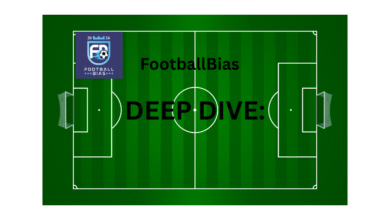How African Football is Evolving in Today’s Game
Reshaping Perception

For decades, Africa has been football’s richest talent pool and Europe’s favourite hunting ground. The pattern has always been clear , the continent produces, Europe refines. But that dynamic is beginning to change, slowly and subtly. African football is starting to move from dependence to development, from exporting potential to building platforms.
The influence might still be small, but it’s visible. African players are no longer just passengers in Europe’s system; they’re anchors, leaders, and symbols of progress. And while still a long way from there, more academies, local leagues, and federations are beginning to understand that the goal isn’t to copy Europe, it’s to stand beside it. The road to independence is long, but it might finally be opening
Before Africa could dream of football independence, it needed proof that it belonged. That proof came through a generation of trailblazers who carried the continent’s reputation on their backs. George Weah showed what was possible, becoming Africa’s first and only Ballon d’Or winner. Samuel Eto’o dominated Europe’s biggest stages, winning everywhere he went. He remains the only player in football history to win a treble in two consecutive seasons, with different clubs. Didier Drogba and Yaya Touré turned Premier League clubs into global brands while inspiring millions back home.
These players didn’t just play, they represented. They forced the world to take notice, to see African footballers as more than raw talent. They were leaders, activists, and pioneers who redefined how Europe viewed African ability and professionalism.
The new wave of African talent isn’t just breaking into Europe anymore, it’s running it. Players like Mohamed Salah, Victor Osimhen, Achraf Hakimi, and Riyad Mahrez aren’t outsiders or projects; they are and were central figures in their teams’ success. Salah became Liverpool’s face during their most successful years in recent memory, Osimhen fired Napoli to a long-awaited Scudetto, Hakimi’s reliability defines PSG’s structure, putting among the best in the world in his position and Mahrez’s brilliance powered City through years of silverware.
These players represent a new level of trust. They’re not just surviving in Europe’s biggest leagues, they’re leading, captaining, and delivering consistently. Their professionalism and mentality have dismantled old stereotypes about African inconsistency. They’re proof that African football too can consistently produce world beaters.
While African football isn’t shaping tactics globally yet, its players are reshaping expectations within European systems. Coaches now rely on their adaptability, athletic intelligence, and mental strength to execute complex roles. From box-to-box midfielders to pressing forwards and flexible defenders, African players embody the modern game’s demands for work rate and balance while combining it with technical ability.
Beyond tactics, they’ve also changed dressing room cultures. Many bring humility, focus, and resilience that stabilize elite squads. You could see it in players like Sadio Mané during his time at Liverpool, leadership through quiet examples, not noise. They’ve become emotional anchors in teams built on egos. Africa is quietly redefining what makes a player valuable.
The last Africa Cup of Nations was more than a tournament, it was a statement. It drew global audiences, dominated social media, providing meme after meme, alongside the beautiful chaos that is African football and reminded the world that African football has quality, passion, and unpredictability in equal measure. Matches were intense, atmospheres electric, and players proudly carried their nation’s reputations. AFCON 2024 didn’t just attract African eyes, it brought in fans from Europe, and the Americas, many following their club heroes in different colours.
The last Club World Cup brought positive attention to African football too. Al Ahly’s discipline, tactical maturity, and game management caught global attention, earning them plaudits even in defeat. Mamelodi Sundowns carried that same modern edge with structured pressing, smart rotations, and technical confidence that used to define only European sides.
These performances didn’t bring trophies, but they brought respect. They showed that African club football is learning to compete on global terms, not through flair alone, but through preparation and adaptability. The gap between Africa’s best and the rest of the world is still large but we’re seeing signs that it could reduce
CAF’s organisation is gradually improving too. The pitches, broadcasting quality, and global accessibility have made African football more watchable and more respected. Morocco’s 2022 World Cup run only added weight to that momentum. For the first time in a long time, Africa isn’t just producing players, it’s producing football worth watching on its own stage.
Europe still depends heavily on Africa’s raw talent, but the terms of that relationship are shifting. Clubs aren’t just waiting to buy finished players; they’re investing directly in the source. Academies like Right to Dream in Ghana, Diambars in Senegal, and Red Bull’s partnerships across the continent have become blueprints for sustainable recruitment.
These systems allow African youngsters to train in professional conditions without losing their identity. They’re still eventually exported to Europe, yes, but with more control and understanding from within. The power dynamic isn’t balanced yet, but the continent is learning how to keep value in its own system. The next challenge isn’t producing stars, it’s learning how to keep them.
The next chapter of African football isn’t being written just by players, it’s being led by coaches who understand how to merge structure with instinct. Abdelsalam Ouaddou is the clearest example of that evolution. His guidance of Orlando Pirates to their 2025 MTN 8 cup final win wasn’t built on cautious football or overcomplication, it was sharp, direct, and transitional. He understood the strengths of his players and built around them, not against them. That clarity is something African football has often lacked at the top level.
Ouaddou joins a growing list of African tacticians who are proving that leadership and tactical depth exist right here at home. From Walid Regragui’s discipline with Morocco to Aliou Cissé’s measured pragmatism with Senegal, the message is clear: Africa can grow from its constant need to imitate European Football. It just needs to keep trusting its own.
African football isn’t at the summit yet, but it’s climbing with purpose. The world still sees the continent as a supplier of talent, and yes, African football still operates with European validation in mind, but it’s no longer waiting for permission to matter. The foundations are being built, the leagues and coaches are developing , and a growing sense of identity that doesn’t rely solely on Europe’s approval.
From Drogba to Osimhen, from dependence to direction, the journey is steady. The global game might not revolve around Africa yet, but it’s already being powered by it, quietly.






